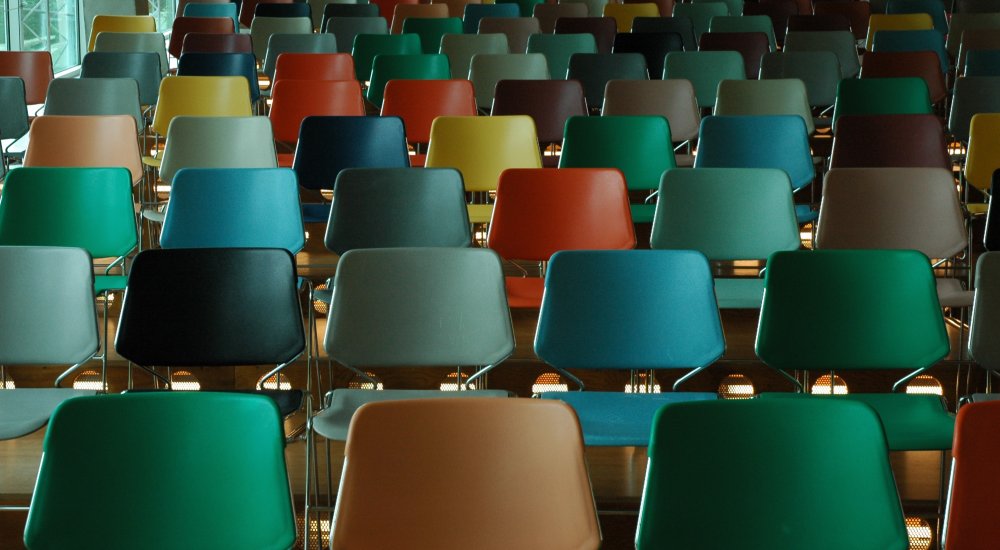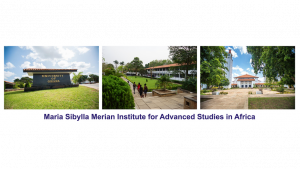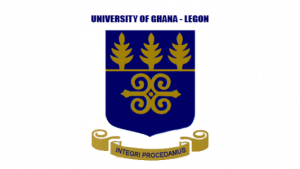Tandem Residential Fellowships at MIASA / University of Ghana

The Merian Institute for Advanced Studies in Africa (MIASA) offers
Up to two Tandem Residential Fellowships
for 3-6 months each at the University of Ghana
for the Academic Year 2025/2026
Application deadline: 30 August 2024, 23:59 UTC
The Merian Institute for Advanced Studies in Africa (MIASA) is dedicated to research in the Humanities and Social Sciences. The overarching theme of MIASA is ‘sustainable governance’ from a genuine interdisciplinary and critical perspective, whereby ‘governance’ is understood in a wide sense, namely as the interplay of informal and formal rules for steering public affairs, embedded in social, material and cultural practices of everyday life. Our main research axes are sustainable peace, sustainable democracy and sustainability transformation, but we are also interested in a wide range of intersectional sub-topics, such as landownership and acquisition, migration and mobility, restitution of colonially acquired cultural objects, African cities, human rights, and other related themes. MIASA is committed to reduce global asymmetries in knowledge production, to promote female scholarship and to bridge cultural divides. The institute offers time and space for supporting innovative academic research of top international quality. All MIASA fellowships are residential and mainly focus on onsite reflection, discussion and writing. In addition, MIASA facilitates networking and collaboration amongst leading researchers from Germany, Ghana, other parts of Africa and Europe and elsewhere in the world. The institute is located on the beautiful campus of the University of Ghana (UG) at Legon (Accra), and has been implemented in collaboration with the University of Freiburg, the Goethe University of Frankfurt, the German Institute for Global and Area Studies (GIGA) and the German Historical Institute Paris (GHIP). It is funded by the German Federal Ministry of Education and Research with co-funding of the University of Ghana.
The present call is for up to two (2) tandem residential fellowships of minimum 3 and maximum 6 months each for the academic year 2025/2026 (the starting date is handled flexibly, earliest starting date for fellowship: 1st of June 2025; latest date for end of fellowship: 31st of August 2026). A tandem is composed of a team of two researchers – one who is based in an African country and one who is based in Germany – who apply together with a joint research topic, addressing MIASA’s overarching aims.
The call is open to scholars (both on junior and senior levels) who have been awarded their doctoral degree at least three months before the start of the fellowship. Projects can be at conceptional stage, mid-term phase or final stage (analyzing data, writing up findings).
Fellowships are residential with only short absences possible for activities such as conference participation and field work trips. Data collection cannot be the main purpose of a MIASA fellowship. The fellow selection is made by MIASA’s distinguished international Academic Advisory Board. In a strictly merit-based selection process, tandem fellowships are awarded to researchers of top academic quality with an innovative research topic of high quality. The all-important selection criteria are the academic excellence of the applicants and the fellowship proposal. MIASA is also committed to gender balance.
MIASA supports academic exchange across existing boundaries: between disciplines, between different cultures and countries, between established and early-career researchers. Furthermore, MIASA engages in activities opening the research community to society, politics, and the arts. Tandem fellows are part of this community, and benefit from the lively research environment of the University of Ghana. Applications for tandem fellowships should indicate how the research project contributes to the activities at MIASA and, more broadly, to the academic life on Legon campus.
Fellowship
The successful applicants become MIASA fellows with all the corresponding rights and obligations for the requested funding period. For fellows affiliated with an institution, the fellows’ salary or teaching substitution costs are met by MIASA for every full fellowship month and paid directly to his/her home institution (maximum 6925 EUR/month). In cases where this is not possible, an individual grant based on the candidate’s salary at his/her home institution can be offered (but maximally 6925 EUR/month). Fellows may be eligible for a post adjustment to a minimum fellowship amount on a case-by-case justification. Fellows without employment receive an individual monthly grant. For fellows from outside Accra, MIASA pays an accommodation allowance of up to 1500€/month and reimburses travel costs at the beginning and the end of the fellowship. MIASA fellows who come with family members to Accra can receive a family allowance. Fellowships are funded by the German Federal Ministry for Education and Research via the University of Freiburg.
The Institute provides its fellows with office space on the University of Ghana – Legon campus. A full-time presence of fellows at MIASA for the entire fellowship period is required. Periods of leave need to be approved by the MIASA directors in advance and must not exceed 1/6 of the fellowship duration.
Application
Applications will be accepted in English and French. The completed application form together with the information indicated below have to be uploaded on the application platform. After submission of the documents, applicants receive an acknowledgement of receipt with contact details and a copy of their submitted documents. Incomplete or late applications will not be considered.
Please respect formal requirements:
- Formatting: font Arial, 11 pt, line spacing 1.5, all margins 2.5 cm.
- Page limits may not be exceeded.
Applications must include the following information:
- Front page with general information on the applicant (max. 2 pages):
-
- Title, name (last, first), e-mail address, link to webpage.*
- Date of doctorate.*
- Current position/affiliation, institution and business address (name of institution/ city/ country).*
- Research field.*
- Title of joint tandem fellowship project.
- Abstract of the joint tandem fellowship project (max. 150 words).
- Preferred dates for the joint tandem fellowship at MIASA (within the time frames offered by MIASA).
- The two most important reasons why you apply for a residential fellowship at MIASA.
* This information has to be provided for both fellows.
- Project proposal (max. 5 pages):
- Project title (max. 50 characters)
- Abstract of the fellowship project (150 words)
- Aims, theoretical framework and methodology of the project.
- Work and time plan (note: the fellowship only offers a max. of 250€/month research costs for each of the two tandem fellows and requires being present at MIASA, University of Ghana).
- Innovative potential, originality and relevance of the project.
- Added value of spending time at MIASA and the University of Ghana as well as of conducting a research project as a tandem team.
- Bibliographical references (max. 1 page in addition to the 5 pages of the proposal).
- CV in tabular form (max. 2 pages for each candidate).
- Publication list highlighting the most important publications (max. 2 pages for each candidate).
Please note: no cover letter is required, but a front page.
All four documents have to be submitted as pdf and uploaded on the application platform separately.
Application deadline: 30 August 2024, 23:59 UTC:
Application platform: https://mobility.frias.uni-freiburg.de/mobility/BewerbungServlet?identifier=FRIAS&kz_bew_pers=L&kz_bew_art=IN&aust_prog=MIASAtwo&sprache=en
Successful candidates will be informed in February 2025.
For further information, please contact: miasa@act.uni-freiburg.de

